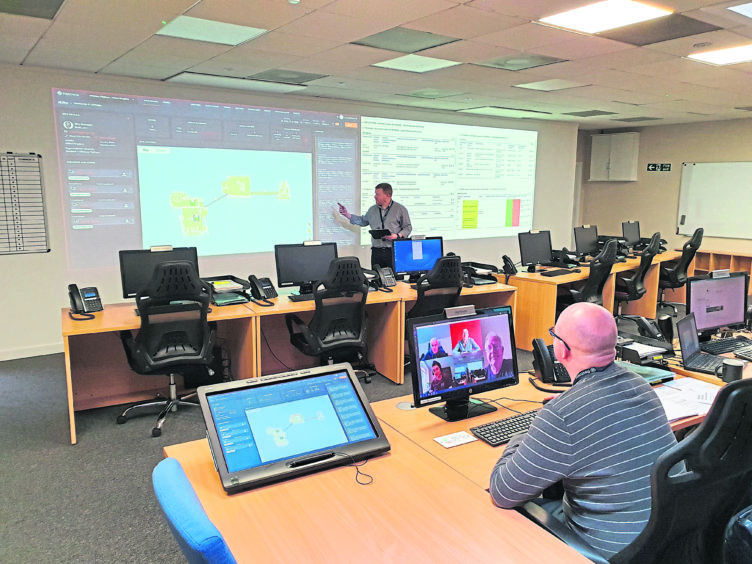
With the vast majority of office staff working remotely due to the restrictions and risk posed by the ongoing Covid-19 pandemic, office-based staff and families alike have seldom felt so disconnected from the key workers and loved ones who continue to man offshore and onshore installations, critical to supporting the nation’s energy requirements.
While these workers continue to operate in an even more challenging environment, onshore emergency preparedness and response capacity remain of critical importance to ensure the workforce continues to be safeguarded at a time of elevated risk.
Restrata is a leading global emergency response company providing 24/7 monitoring and response services to safeguard more than £50 billion-worth of assets in the North Sea and beyond.
The Covid-19 pandemic posed the company the dilemma of how to maintain the capabilities of its response teams when mobilising to an incident management room is potentially unsafe.
Restrata has always been forward-thinking and innovative, having invested heavily in the development of the Restrata Platform and other technology to support its Global Operations Command Centre (GOCC) in Aberdeen.
When the Covid-19 restrictions were first announced, Restrata’s priority, as always, was the protection of any organisation’s most valuable asset – its people.
Restrata recognised the industry’s need to safeguard more than just those immediately involved in a potential incident but also their staff, responders, customers and their families, as well as the wider community.
Restrata’s experienced team leaders and its software package, the Restrata Platform, allowed the company to immediately change the way it responds, enabling emergency response from home (ERFH), while maintaining command and control of any incident.
This realignment of working practices enabled the regular exercising of response teams to continue, safeguarding key workers, in-house and client response staff and their families, while enabling a remote response process for real-life incidents.
Understanding the need for collaboration, Restrata very quickly sought to involve other agencies in its response exercises, including Police Scotland, Oil Spill Response Ltd,
Wild Well Control and the Department for Business, Energy and Industrial Strategy.
As restrictions begin to ease in line with the roadmap for the safe reopening of the country, the Restrata Platform technology continues to support industry as the emphasis shifts from mitigation to recovery.
The Platform, initially developed and utilised for industrial sites and critical national infrastructure, has been repurposed and deployed within sporting arenas in the UK to manage social distancing and contact tracing as part of the safe return of live sport at these venues.
This technology provides the same critical functionality required to manage the return of staff to offices and sites across the energy sector, supporting business continuity as industry continues to adapt to the new norm.
Simon Marwick, head of the GOCC and UK operations, commented: “We looked at ERFH to ensure the sustainability and continuity of our response and to protect responders and their families.
“Not looking after this aspect of the response could have put additional people at risk and jeopardised our ability to support an incident site.
“The increased emphasis on technology has allowed Restrata to develop process improvements which will be incorporated into response as part of the new norm.
“The Restrata Platform has allowed for the ability to share information live from the site, ensuring that the onshore response team can proactively plan and put support mechanisms in place in advance of communication from the site dealing with an incident.
“The Restrata Platform will continue to safeguard staff and families by reducing the risks associated with the re-opening of offices in the coming months .”
